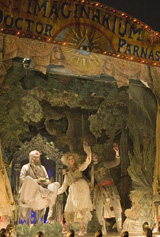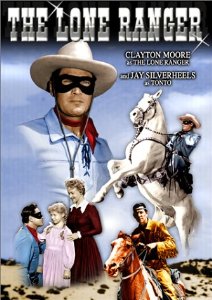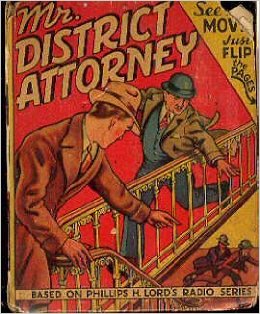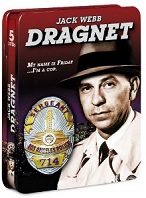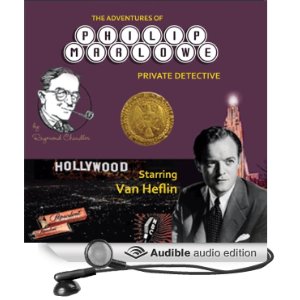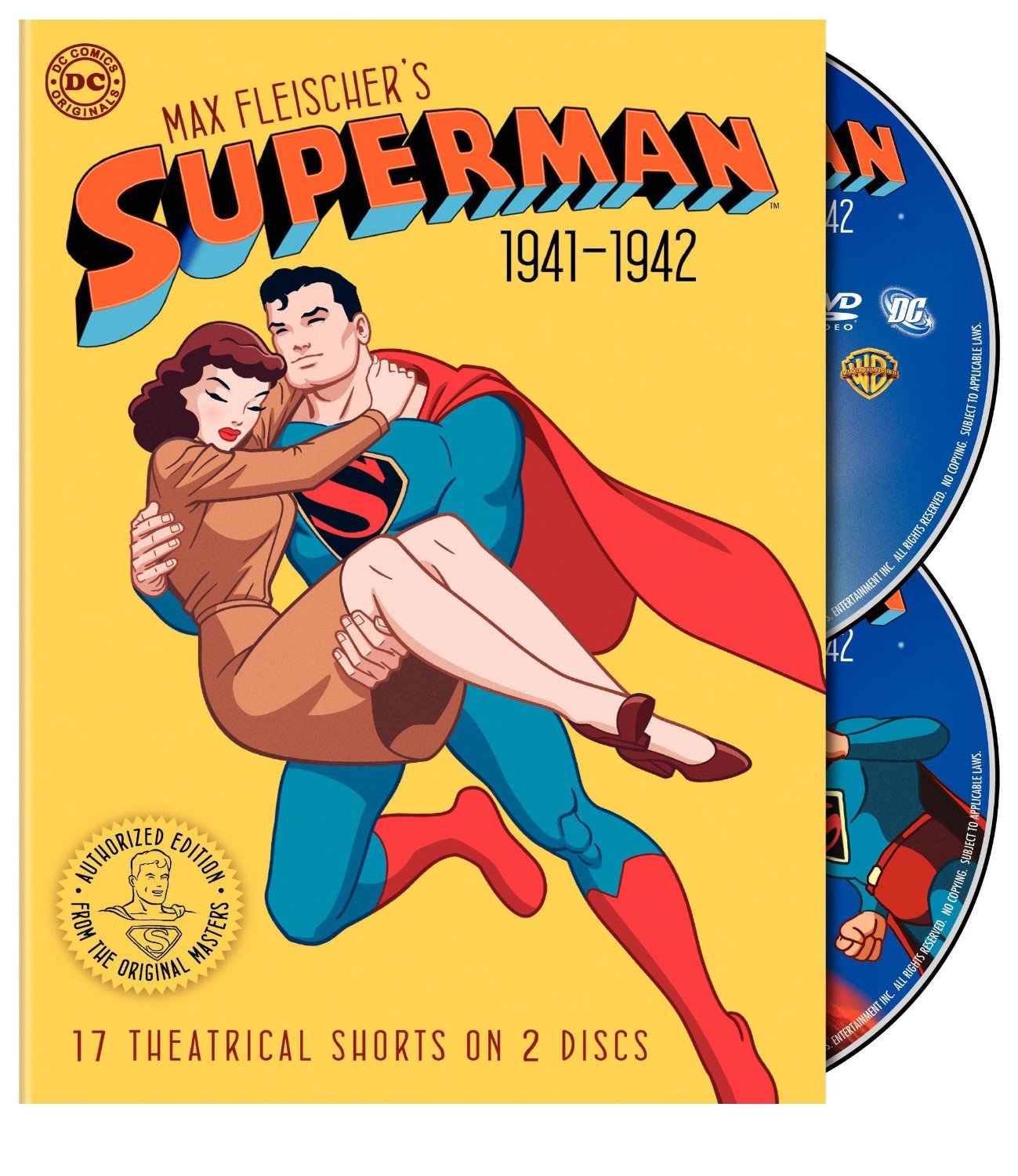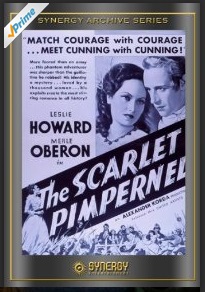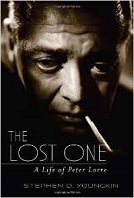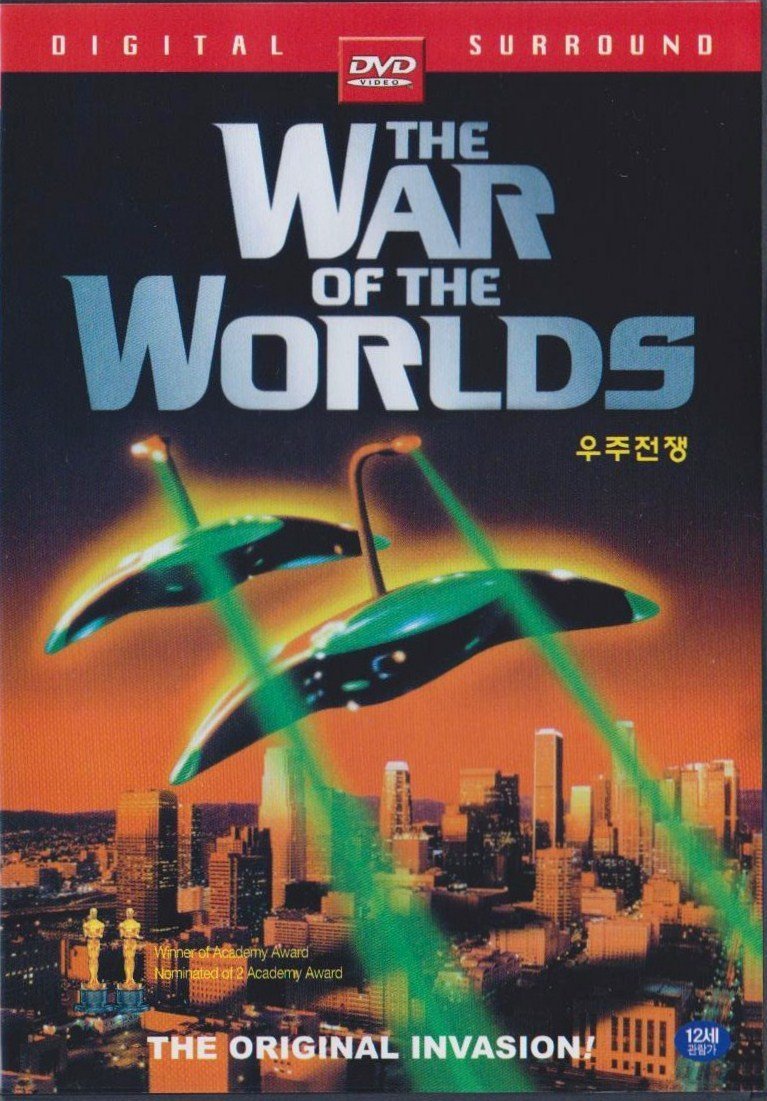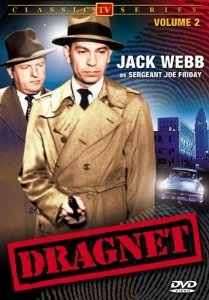Back in December, Breanne Mattson received word that Bruce Dern was signed on for her upcoming feature, a captivating thriller called Warning Shot. Well, several more names have surfaced since then. Including David Spade, and Darth Vader himself – James Earl Jones! Terrific news, isn’t it?
Well, even more terrific is that Anthony Cawood, had the opportunity to sit down and interview Breanne herself.
So, without further adieu, here’s what they discussed. Here’s a hint: read this one word for word. It’s fascinating – and informative too!
Q: Could you give me a little bit of background on how you got into screenwriting?
The short answer is I love movies and I love to write, so it just makes sense. Elaborating, I’ve been writing in some form or another since I was a kid. I grew up in a rural area where I often had to get creative to occupy my time. I did have access to music, movies and television growing up. For me, they were inspirational. They sparked my imagination. So I developed a love of the performing arts alongside my love of writing.
As for how I got into screenwriting specifically, I was booking musical acts for local events when I was approached by an independent producer about putting him in contact with musicians. He was looking for music for a movie. I took one look at the script and fell in love. I wondered why I wasn’t already doing that. So I started my first screenplay.
Q: You’ve been writing scripts for years, why screenplays?
There’s just something about screenplays that suits my personality. I love everything about screenwriting. The character development, the plotting, the visual nature of it, everything. It’s almost like needlework for the mind. I can say things or suppose ideas through an exploration of the human condition. It allows me to express my own empathy while providing an illustration for others, or to vent frustration while providing a method of catharsis for others.
Q: You work in TV, what is it you do and has it helped any with screenwriting?
I work in video production, mostly doing graphics. When you see the score change after a touchdown or a wrestler’s name appear at the bottom of the screen as he enters the arena, that’s me. It actually does help with screenwriting in some ways because it enables me to interact with all sorts of interesting people. I see behind the scenes at a lot of events and meet all sorts of characters. It can also be a lot of fun. I got chased around the ring by a wrestler once, for example. I’ve done a lot of cool stuff.
Q: Your first credit, at least according to IMDB, is the short Cobra Blood Cocktail, how did that get made?
The director contacted me through Simply Scripts. It wasn’t the first time someone had asked to produce one of my shorts, but it was the first time someone actually did it. It boosted my faith in the process.
Q: You’ve taken the role of Writer/Director on one of your shorts, Selfless, was this to maintain artistic control, expand your experience, or something else?
To gain experience, yes, but it also allowed me to be proactive. In 2009 I had a feature optioned by F. Javier Gutierrez and his then manager Richard Schwartz. Javier was on Hollywood’s International Watch List at the time for the feature “Tres Días” (which was changed to “Before the Fall” for American release). I was very excited and everything looked great, then the script languished in development for a year and a half. It was a wake-up call for me.
Around that same time, I had contracted to write a script for a development boutique. It was also very exciting, yet disappointing.
By 2010 I was depressed by the lack of progress with my career, so I decided to shift my focus. Instead of focusing on Hollywood, I decided to pursue independent film opportunities and just leave the door open for Hollywood. So in a lot of ways “Selfless” was a strange mixture of creative experimentation, learning the filmmaking process, and combating depression by doing something constructive. I was just trying to learn the process and develop some useful skills for the future.
Q: What did you learn from that experience and your subsequent shorts?
Too many aspiring screenwriters don’t understand how movies are really made and it’s problematic. A better understanding will not only make you a better writer, it will better equip you for a career in this business. Until you’ve gone through the basic process, including planning shots, scouting locations, casting, figuring out what the cast and crew will eat, or where they’ll go to the bathroom, or how you’re going to pay for it all, you really just don’t know what you’re talking about. Understanding these things will make you a more collaborative and contributing member of your team. And it will make you a better screenwriter. To me, that alone was worth it.
Q: Your short script, A Day with Death, was filmed in Africa and shown at quite a few international festivals, how did that come about?
The director found it through Shootin’ the Shorts. It’s another project helped through Simply Scripts. I’m very proud of it because it really demonstrates how simply writing something that explores the human condition can cross cultural boundaries. A filmmaker halfway around the world produced it and it went on the win the Viewers’ Choice Award for Best Short Film or Online Video at the largest film and television awards ceremony in Africa.
Q: Any other shorts in pre-production we should be looking out for?
Some filmmakers in New Zealand were trying to put “The End in Sight” together. I’d love to see that happen. I was looking at directing another one, but put it aside when “Warning Shot” started moving forward.
Q: Would you advocate writing short films, why do you think they are useful?
It’s interesting to watch the changing landscape with regard to shorts. They haven’t traditionally been known to make money and new ways are being found to monetize them. I haven’t personally put much stock in them in terms of returns, but my attitude is changing as I’m seeing new opportunities. At this point, I still think they’re generally more useful as learning experiences. They’re great for learning the basic filmmaking process, but that’s only if a writer chooses to get involved.
As for their usefulness toward making a writer a better writer, I think it depends on how you approach them. I generally focus on the same things I do with a feature. I consider things like character development and story arcs. If a writer ignores those things, then they’re really just purging. That’s okay, but I’m not convinced it will really prepare you for writing a feature. And I don’t think shorts are going to supplant features anytime soon. I hear a lot of people talk about the short attention spans of the current generation, but they say that about every generation. The current generation is quite capable of immersing themselves in something for a couple of hours. Movies and video games prove it.
Q: Did you start with short scripts and then move to features?
I jumped right in and wrote a feature first. It was terrible. My second feature was a monumental improvement. It was like the difference between Metallica’s “Kill ‘Em All” and “Ride the Lightning,” if “Kill ‘Em All” had been awful instead of awesome. It was like they were written by two completely different people. I only write shorts if I can fully exploit the ideas of a story in a short span or if the idea of a feature feels anaemic.
Q: When it comes to feature scripts, how do you approach structure in your scripts? Do you follow any particular method?
I try and keep structure very basic. I’m of the mindset ‘simple story, complex characters.’ I believe in letting characters complicate a story. With plotting and structure I only need a basic framework for the characters to operate in. I generally use the three-act structure with the second act divided into two halves. I do like a midpoint, so in that regard I guess you could say I use a four-act structure. I use the same major plot points most writers are familiar with.
Good plotting will camouflage any structure in much the same way strong three-dimensional characters will camouflage any plotting. That’s why I focus so much on characters. I understand they’re the key to a successful story. Everything I write, no matter how much action may be in it, is ultimately character-driven.
Q: What was the first feature you wrote and how did you get it out there? Did you query Producers, enter competitions, use Inktip, etc?
I don’t recall the first feature I ever queried a producer about. It wasn’t the first one I ever wrote, but yes, I queried producers and managers. I also tried places like Inktip, yes. I didn’t find any of it to be all that effective. I didn’t really try a lot of competitions until later. I haven’t generally found them to be all that effective either. The most useful thing about competitions – particularly if you’re fortunate enough to place in a major one – is that it can give your script a little more credibility.
Now this is just my personal view – and I know it diverges from that of the average up and coming screenwriter – but I don’t really think about things like getting a manager or agent. If that happens, it will happen during the course of what I’m doing. I stay focused on getting movies made. I think shifting my focus to independent film was the best thing I ever did. It allowed me to stay busy and feel productive. I’ve interacted with producers, actors and and crew. It’s been very healthy for me as a writer. A lot of people fail to recognize or appreciate the resources they have available outside Hollywood. Even right there at the local level. It’s a lifeline, it really is.
Q: Your features have done really well in some of the most prestigious competitions (congrats!), did you receive interest from agents/producers afterwards?
Thanks! From producers and managers, yes. Not so much agents. Managers and producers seem to create a bit of a buffer between writers and agents. I had what they call a hip pocket deal with a manager for a time, but it’s hard to find someone who wants what you want.
It’s important to keep in mind that Hollywood is a place, not a person. I know for a fact there are people in Hollywood who want to make great movies. They care. They do. They just don’t always have the power to get things done the way they want. There’s this mindset among a lot of people in this business that everything has to go through this development process where it’s supposedly improved. Even if it’s not.
We always hear how ninety-nine percent of scripts are terrible, but what a lot of people don’t understand is that it’s not just a writer thing. Producers, managers, development people, executives and investors can all have terrible ideas. I’ve been involved with quite a few projects by this point that looked like they might go somewhere, only to watch them fizzle. It’s a heartbreaking business.
The trick is to find people whose philosophies align well with your own. I’ve found working with people who don’t get what you’re about to be futile. That’s why I like working with people like Dustin (Fairbanks) so much. He’s made sacrifices to maintain his integrity and I respect that about him. I believe in Dustin and have a fierce loyalty to him. It’s refreshing to find somebody like that in this business – and worth the long hard road to get there.
Tying this back to your question, I think it’s more important than anything (besides writing a great script) to get out there and work in the business in any way you can. Meeting people and networking will almost always prove more fruitful than competitions or queries. And you’ll feel better about yourself. I cannot stress this enough.
Q: People may have heard the term ‘hip pocket deal’, but what does it mean/involve?
Basically, it means a manager or agent is representing you or your work without a contract. They operate in the same capacity as your manager or agent though you’re not an official client. If your script sells, typically you would get signed. It also allows a manager to get to know a potential client better before signing them. That works out well for the client, too. You can make a clean break if a potential manager isn’t working out for you.
Q: What are your thoughts on screenwriting competitions in general?
I think they’re fine as long as you maintain perspective and don’t get carried away. They can be fun and eye-opening experiences, but there’s very little chance a competition is going to launch your career. I was sparing with them and stuck mostly to the top ones. I wouldn’t advise spending a lot of money on them. You’d be better served putting that money into a movie.
Q: Your feature script, Warning Shot, is currently shooting and I believe you’ve been on set too… how did it get picked up?
It was a Nicholl quarterfinalist in 2011. Managers and producers said it was great, but it seemed nobody wanted to do anything with it. Managers I spoke with wanted to use it as a sample to try and get assignment work. Most producers wanted me to write something based on someone else’s idea as well. They liked my character development and wanted me to help create characters for their own projects. I reread the script one day and felt it was being overlooked. So I put it back on the market. It received a positive review over at the Scriptshadow website. That’s how I met Dustin.
Dustin deserves a lot of the credit. He’s the one who went out there and made the connections who could get the script into the hands of known actors. Bruce Dern signing on was really a turning point. That’s when people started taking us more seriously. It’s a bit like that scene in “Raiders of the Lost Ark” where the villain Belloq is walking with the Nazi officer and talking about how he followed the directions on the amulet. He looks over and sees Indiana Jones and Sallah digging with a crew and realizes something is going on over there. People started noticing that this little low budget indie picture was attracting names.
Q: What can you tell us about the script?
It’s a hostage thriller. The main character is a single mother trying to take care of her daughter on a limited income. When they’re both taken hostage by a couple of men sent by her grandfather’s business rival, she’s placed into the most vulnerable position imaginable. She’s completely helpless and has to try and protect her daughter at the same time. One of their captors is extremely dangerous and unpredictable. He enjoys tormenting people, psychologically as well as physically. It utilizes a common theme in my work – the power of one. The nobody everyone thinks they can walk over who has to find it within themselves to stand up and fight back.
It’s very character driven. Instead of getting bigger, I went deeper. It’s a mistake to think a movie is less just because its budget is smaller. This script allowed me to say things I’ve wanted to say for a long time. I got to explore the human condition on a level that’s harder to delve into when the plot is thicker. I was forced to push my creativity. I think low budget storytelling is actually more challenging than big budget. It’s much more difficult to create a sense of progression when your options are so limited. The good news is that it really helps with creating a sense of genuineness when a character’s options are limited.
Q: It’s got an incredible cast, including Bruce Dern and James Earl Jones, how has it been working with such stars on your first US feature?
It’s been surreal. I was stunned when I heard the names of the actors who were reading my script. Stunned. They were huge. I’m at a loss trying to express the feeling of being told Bruce Dern or James Earl Jones or David Spade is reading your script. And then to have a producer call you and say they’re going to do it. It’s almost impossible to describe.
Bruce is incredible. He’s a living legend. You just aim a camera at him and he does his thing. That voice. That inflection. He’s like a hurricane. He tears it up. You just have to film it and figure out later how to minimize the loss of any of that gold. I don’t envy the editor trying to decide what material to cut in the wake of a Bruce Dern performance.
James Earl Jones is, of course, movie royalty. He’s such an amazing talent and an incredibly nice person. I was standing by the monitors with a headset on and watching him on set when he said, “Where’s the writer? Is the writer here?” Imagine that in James Earl Jones’s voice. I was awestruck.
David Spade is huge in the world of comedy. I really feel honored that he chose this project for a rare dramatic part. And he did a fantastic job. He really got the character. And he’s a really nice guy. And hilarious. Just listening to him between takes had me dying laughing. Bruce is also very funny. David and Bruce together were killing me.
The first time I heard Tammy Blanchard might take the lead, I pushed for it. I think she’s amazing. And she was every bit as awesome as I knew she would be. Her talent is a sight to behold, let me tell you.
Frank Whaley is also an amazing actor. Watching him work was just jaw-dropping for me. He’s such an artist. I believe he’s an acting genius.
Onata is one of the best child actors I’ve ever seen. I mean that. Child roles can be scary. You have to wonder about a child’s ability to capture a character in adult situations and you worry about the effect it might have on them. Onata killed it. And concerns about the effect were unfounded. She shrugged off the intensity better than a lot of the adults (laughs).
Then there’s Guillermo Díaz and Dwight Henry. They had a great chemistry together and played off each other so well. Guillermo is a really nice guy in real life, but he’s so creepy and scary on screen. There are a lot of nuances in his performance. People might miss a lot of them the first viewing. I love that kind of stuff.
Dwight is a terrific natural actor. He’s just got this special something. An x-factor. He’s super nice in real life, too. Always a smile and always so positive. He’s also a baker. He brought some of his buttermilk drops to set one day and went around handing them out to people. Such an amazing person.
The whole cast and crew were all just so wonderful. I couldn’t have asked for more. I’ve got lots of stories to tell. Too many to write up right now. Maybe I’ll do a Q&A or a sit-down interview someday and tell some of the stories.
Q: So how different is the shooting script for Warning Shot, compared to the Nicholl script?
Oddly, it’s still relatively close. There were a lot of changes, but the basic story itself held up.
Q: And are these changes driven by you, Dustin, cast… All of these?
They come from everywhere, starting with producers. It seems like everyone wants to make changes. I was fortunate to have a director who wanted to minimize unnecessary changes. Dustin still won’t tell me all the change requests because he says I’ll flip out (laughs).
Some changes are out of necessity. During casting, I sometimes changed things to court particular actors, then changed them back if the actor passed. One character was changed from male to female and back again. One character’s ethnicity changed. A couple of characters were expanded to give bigger actors more to work with. So casting drove a lot of changes while it was being packaged.
The script changed during production sometimes, too. Location constraints might require a rewrite to compensate. A small rewrite might be necessary to fix a continuity error. And, of course, there are the actors. Sometimes rehearsal reveals things that need to be addressed in the dialogue or action. Action can usually be addressed with blocking, but the dialogue sometimes needs to be trimmed or rewritten. I found out one evening around 6:30 I had to rewrite a scene that was going to be shot first thing the next day. I had to get it done before I went to bed because sides were going out the next morning. That’s the kind of situation writers can find themselves in on a movie set.
Q: Anything you’ve learned from the experience? And anything you’ll change in future scripts because of it?
Some things, yes. There’s a distinct point where you realize your script isn’t yours anymore. I remember looking around one day at all the cast and crew working so hard and realizing that all these people represent all that I’m unable to do on my own. It’s humbling. It takes so many people and they work so hard every day. And for such long hours. They give so much of themselves. It’s so much more than one person could ever do. I thought to myself what foolishness and arrogance it is to perceive a script as purely your own.
More practically, I see things I can do to make people’s jobs easier. In the future I’ll look more at the timing in scenes and the relationship between the dialogue and the action. I’ll also be more mindful of some technical things like abbreviated scene headings to ensure they’re unique enough that they can’t get confused with other locations when the script is broken down.
Q: What’s the release plans/schedule for Warning Shot?
We’re shooting for festivals next year. We’ll have to see what kind of distribution deal we can get. It’s a little too early to set a specific date.
Q: There are a ton of people out there who offer coverage services, position themselves as gurus etc, what’s your view on such services?
I generally think if a script consultant can be an expert on screenwriting, why the hell can’t a screenwriter? Why can’t I be the expert? I don’t buy the logic that a writer is “too close” to their work to see its flaws. That excuse works early on, as you’re learning the craft, but it’s entirely possible for a writer to develop the ability to objectively scrutinize their own work. I don’t get writers who think they will forever need someone else to tell them whether or not their story works.
Writers have to be able to know what works and what doesn’t work in a story. That’s the real talent. If a screenwriter doesn’t have that ability, I don’t see much of a future for them. If a script consultant does have that ability, I don’t see what’s stopping them from being the writer instead of the consultant.
I do think there’s a place for script coverage when it comes to readers helping producers find projects. If a reader is levelheaded and acting in the best interest of the producer, they can really help a project get off the ground. If it’s a jealous writer who really has no motive to see another writer succeed, then they can kill a project. I think too many producers put too much stock in the opinions of consultants, but it’s because I’ve seen the damage they can do. I’ve had producers think a script was wonderful, only to see their confidence wane when a consultant was negative. I don’t understand how a producer can be so excited about a script and then have so little faith in the writer. It seems strange to me that someone would value a consultant’s opinion over that of the writer who wrote the script they love.
I realize you’re talking about services and not the consultants hired by producers, but my opinion of consultants who sell their services directly to writers is essentially the same. If the consultant knows what they’re talking about and has the writer’s best interest at heart, then they can help a writer improve. If not, they’re really just taking your money. At some point, however, writers need to reach a level of competence where they don’t need that anymore. They should know when a story works. They shouldn’t need anyone else to tell them.
This gets back to working with the right people. I care more about what Dustin or the actors think than any consultant. We’re the ones making a movie together.
Q: What are your thoughts on the business side of screenwriting, getting your scripts ‘out there’ and networking to make connections?
I think it’s crucial. It’s important that the writer does that or has someone advocating for them who can do it more effectively. I don’t think a lot of aspiring writers realize how many people a script is going to have to excite in order to get a project off the ground. Your script is going to have to inspire a lot of people for a long time. There are so many points where everything could just fizzle.
This is why it’s so important that writers have something to say. People latch on to things that mean something to them. One of the first things Bruce Dern said to me was about how his character resonated with him. Producers, actors, investors, all these people have to see something in your script that moves them to want to see it through.
Q: If you’ve used services/sites like Inktip, SimplyScripts, The Blacklist, what’s your view on this type of model for screenwriters to get their scripts seen, and hopefully picked up?
I’ve said this before, but I really think Simply Scripts is the best stomping ground on the internet for up and coming screenwriters. It’s a trial by fire and it’s free. Only at SS can any writer, regardless of their background or how much money they have, put their work out there to sink or swim on its own merits. There are other great sites for screenwriters, but a lot of them insulate new screenwriters from direct unfiltered criticism.
Other sites only allow a few pages or have some sort of selection process. Or charge. At SS you can post entire screenplays for public consumption for free. If you choose to participate, people will notice and you will get read. And you will get skewered. And you will become a better screenwriter. You will work to succeed or you will fall by the wayside. The way it should be.
I’m speaking about becoming good at it. As far as getting picked up, that’s a different thing, That’s business. There are success stories, but we don’t see what’s going on behind the scenes. We don’t know how much any particular site had to do with any script’s success. From a creative standpoint, I think SS had a lot to do with my development. From a business standpoint, I definitely think it has a lot more to do with just not giving up. I just kept pushing until I connected with the right people.
Q: What screenwriting projects are you working on now and when can we next expect to see your name on the credits (other than Warning Shot)?
Right now I’m planning to work with Dustin again on another project. We work well together. I’ve got several projects I hope to get off the ground in the future. We’re both always looking at what we can get done.
I also field writing assignments, but I only accept ones that really excite me. I’m not interested in anything that doesn’t allow me the opportunity to write something amazing. I’m also not interested in convoluted development processes that impede my own natural writing process. I want to feel good about what I write.
Q: What’s the best and worse screenwriting advice you’ve been given?
The best advice is to write. You have to do the thing you hope to become good at. There are no shortcuts. Until you’re good at it, you don’t have much of a chance. If you’re good at it, you have a chance (assuming you’re willing to work hard and put yourself out there). That’s about as simple as it gets. Other good pieces of advice are to have your own voice, focus on a great story, or read other scripts, but I think to just write is the best.
The worst? Hmm. This might be controversial, but I think the pursuit of perfection is stupid. Yes, I just said that. Perfection is a stupid goal. It’s vague undefined bullshit that has no real meaning in the real world. Storytelling is like a ramp. There’s a pinnacle. It’s not perfection, but it’s as good as it can get. The only options left are to go backward or over the edge. Any changes from that point on are either inconsequential or they screw up the script in some other area. I mean, you can stabilize a bicycle wheel with a second axle but now the damned wheel won’t turn.
It’s a bit like, “Write because you love it.” What vague and useless advice. Of course I love it. Only an idiot would write if they didn’t love it. I write because I want to make movies. It’s implied that I love it. Screenplays are meant to be produced. I want to reach out to people. To hold a mirror up to the world. Making an impact is what I love.
Another shitty piece of advice that I hate is, “Writing is rewriting.” If that’s really how you feel, then I think you should quit. A lot of people in this business want to reduce the writer to the dull tedium of the craft. I say to hell with that. Rewriting is writing. It’s all writing. Love it all. That’s not intended to be a jab at Hemingway – who was a much better writer than I’ll ever be. I just think that once a writer accepts rewriting as a part of the total process, they’ll be a lot happier. It’s possible Hemingway meant essentially what I’m saying and the adage has morphed into something he didn’t intend. Regardless, I think the suggestion that writing should be tedious is bad advice.
Now for a few ‘getting to know Breanne’ questions
Q: What’s your favourite film? And favourite script, if they’re different.
I don’t really have a favorite. I love so many movies, from every genre, throughout the whole of movie history. I’m still going through the classics. I just saw “The Maltese Falcon” for the first time within the last year. If I had to pick one, it would probably be something like “Fargo.”
It’s the same with screenplays. I’ve read so many. “Spotlight” is the last one that stuck with me.
Q: Favourite author and book?
I’m a huge fan of murder mysteries. I can’t get enough of them. I love Agatha Christie. “And Then There Were None” is one of my favorite stories ever.
Q: Beer or Wine (or something else)? And which variety?
Wine. Red. Pinot noir is my favorite. Not much into beer, though I’ve been known to have one on occasion.
Q: Favourite food?
Hmm. I guess spaghetti or lasagna or something. I’m a picky eater. I generally like things plain and I’m one of those people who doesn’t like my food touching. And I hate when people try to get me to eat something I don’t want. People use sight and smell to choose food too, you know.
Q: Any other interests and passions?
I play the guitar. I’m not great at it, just okay, but I find it meditative. I’m also a black belt in Karate. That’s really useful for fight scenes. I also dabble in magic and illusion. I stink at it, but I often find the con artistry techniques useful for making a character appear clever. My husband and I like to take road trips. I find traveling inspirational. I just walk into an interesting location and start imagining all the exciting scenes that could happen there.
Q: You live in Salem, BUT not that one… do you ever get confused tourists?
Not that I’m aware of. We’re on opposite ends of the country from that other Salem. Maybe that helps people separate them.
Q: Any final thoughts for the screenwriters of SimplyScripts?
I don’t think a lot of aspiring writers understand how much they’ll have to write in order to have a career as a screenwriter. It’s a lot. I meet so many aspiring writers who are having trouble with that first script. I tell them to just do it. Just write it. Write the best script you can and let your work speak for itself.
I also think too many writers try and imitate what’s currently hot or trendy. It’s true you can never be completely original. You’ll always be a product of your influences. But all you have to separate yourself from that vast sea of writers out there is your voice. Never sacrifice the thing that makes you unique. Never let anyone get you to give up your voice. Originality is almost impossible, no matter how hard you try. Uniqueness is almost certain, unless you avoid it.
About reviewer Anthony Cawood: I’m an award winning screenwriter from the UK with over 15 scripts produced, optioned and/or purchased. Outside of my screenwriting career, I’m also a published short story writer and movie reviewer. Links to my films and details of my scripts can be found at http://www.anthonycawood.co.uk.
About the writer: Breanne Mattson is no stranger to accolades. Her feature lengths have made Nicholl Quarterfinalist three times (yeah, that’s three times, beeyotch!) She’s also made semi-finalist in Bluecat, Final Draft and honorable mention in TrackingB. She’s also received a “worth the read” from Scriptshadow. Her website can be viewed at www.breannemattson.com (IMDB credits here.)






